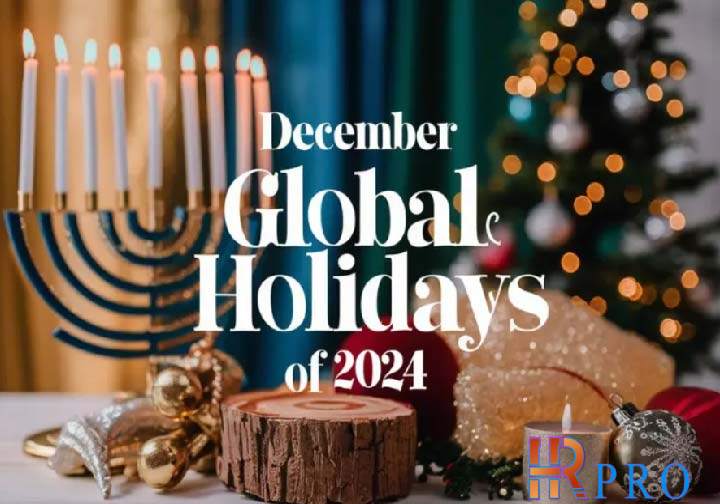Introduction to December Global Holidays
December is often seen as the heart of the festive season. But why is this month so special? It’s because December is packed with global holidays celebrated worldwide, each filled with its own unique charm, history, and traditions. From Christmas to Kwanzaa and Hanukkah to New Year’s Eve, these celebrations bring warmth, joy, and unity during the coldest month for many regions.
Why December Is a Month of Celebrations
December marks the end of the year and brings people together as they reflect on the past months, spend time with loved ones, and celebrate in various ways. It’s also a month when many cultures have longstanding traditions linked to winter solstice celebrations, religious commemorations, and year-end festivities. Let’s dive deeper into some of the key global holidays celebrated in December.
Christmas – A Worldwide Celebration
Christmas, celebrated on December 25, is one of the most popular holidays worldwide. While it commemorates the birth of Jesus Christ in Christianity, Christmas has evolved into a global holiday enjoyed by people of various faiths. Decorated trees, gift-giving, and family gatherings are common traditions.
Hanukkah – The Festival of Lights
Hanukkah is an eight-day Jewish holiday that usually falls in December. Known as the Festival of Lights, Hanukkah commemorates the rededication of the Second Temple in Jerusalem. The menorah, a candelabrum with nine branches, is lit each night during Hanukkah to symbolize the miracle of the oil that lasted eight days. Traditional foods like latkes (potato pancakes) and sufganiyot (jelly donuts) are also enjoyed during this festival.
Kwanzaa – Honoring African Heritage
Kwanzaa is celebrated from December 26 to January 1 by African-American communities in the United States. It was established in 1966 to celebrate African heritage and African-American culture. Kwanzaa centers around the Nguzo Saba, or the seven principles, which emphasize values such as unity, self-determination, and creativity. Each day of Kwanzaa, a candle is lit on the kinara to represent these principles.
Boxing Day – A Day of Giving Back
Observed on December 26 in the UK, Canada, Australia, and other Commonwealth nations, Boxing Day has historical roots in charity. It was traditionally a day for giving gifts to the less fortunate, and today it’s also known as a major shopping day in some countries. Many people use this day to spend time with family or enjoy outdoor activities.
New Year’s Eve – Welcoming the New Year
December 31 marks New Year’s Eve, the final day of the year. This holiday is celebrated with parties, fireworks, and countdowns around the world. Major cities like New York, London, and Sydney host iconic celebrations that are televised globally. For many, it’s a time to reflect on the past year and make resolutions for the year ahead.

Saint Nicholas Day – Celebrating Generosity
Saint Nicholas Day, celebrated on December 6 in many European countries, honors Saint Nicholas, known for his kindness and generosity. This holiday inspired many Christmas traditions, including the idea of Santa Claus. Children often receive small gifts, candies, or sweets in their shoes or stockings on this day.
Bodhi Day – A Buddhist Tradition
Bodhi Day, celebrated on December 8, marks the day Buddha attained enlightenment under the Bodhi tree. It’s a significant day for Buddhists, who commemorate it with meditation, studying the teachings of Buddha, and practicing compassion. Traditional decorations include strings of lights and small figurines of the Buddha.
Yule – The Winter Solstice Celebration
Yule, celebrated during the winter solstice on December 21, has roots in ancient Norse traditions. It’s a time to celebrate the rebirth of the sun and the lengthening of days. People often light candles, decorate their homes with evergreen plants, and gather with family to celebrate this pagan tradition, which has influenced many Christmas customs.
Omisoka – Japanese New Year Tradition
Omisoka, celebrated on December 31, is Japan’s traditional New Year’s Eve celebration. Families clean their homes to start the new year fresh and gather to enjoy a meal together. Just before midnight, many Japanese people eat toshikoshi soba, a noodle dish that symbolizes long life and resilience. Omisoka festivities are often followed by a visit to a shrine or temple.
Las Posadas – A Mexican Tradition
Las Posadas is a nine-day festival celebrated from December 16 to 24 in Mexico and some other Latin American countries. It reenacts Mary and Joseph’s search for shelter before the birth of Jesus. Each night, participants go from house to house, singing and reenacting the journey, ending with a fiesta. Las Posadas is a vibrant celebration filled with music, food, and piñatas.
Conclusion
December is a month that brings people together, transcending cultures, faiths, and backgrounds. Each holiday carries unique traditions and values, yet they all share a common goal: to celebrate life, reflect on the year, and embrace loved ones. As we celebrate these December global holidays, we also celebrate unity, joy, and the rich diversity of human culture.
FAQs
- What are some major December global holidays?
Major holidays in December include Christmas, Hanukkah, Kwanzaa, Boxing Day, New Year’s Eve, and Yule, among others. - Why is December filled with so many holidays?
December is a significant month as it marks the end of the year and includes celebrations of winter solstice, religious holidays, and cultural festivals worldwide. - How is Hanukkah different from Christmas?
Hanukkah is a Jewish holiday celebrating the rededication of the Second Temple, while Christmas celebrates the birth of Jesus in Christianity. Each holiday has unique traditions and symbols. - What is the meaning of Kwanzaa?
Kwanzaa is a celebration of African heritage and African-American culture, based on seven principles that promote unity, self-determination, and community values. - Why do people celebrate New Year’s Eve on December 31?
New Year’s Eve marks the final day of the calendar year, and people celebrate to bid farewell to the past year and welcome the new one with hopes and resolutions.






